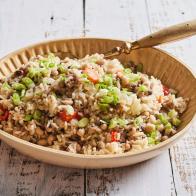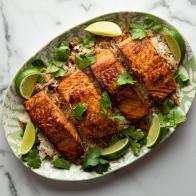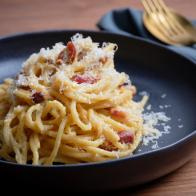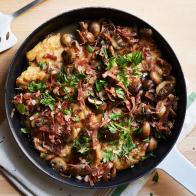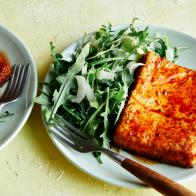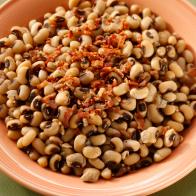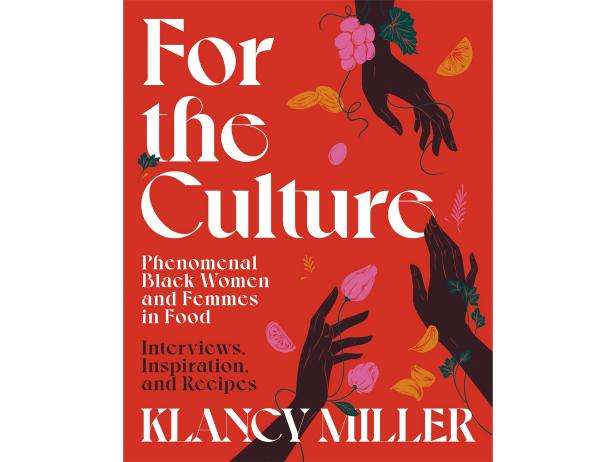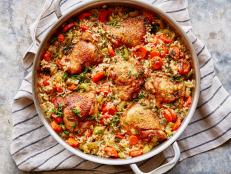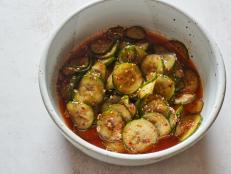Klancy Miller’s ‘For the Culture’ Celebrates and Magnifies Black Women and Femmes in Food
In her second cookbook, Klancy Miller celebrates Black women and femmes in food through recipes, interviews and stunning visuals.
When Klancy Miller was roaming the streets of Paris during her 20s, she knew a lot about her goals and dreams in the culinary space, but didn’t see many other Black women in food. History and life experiences made it abundantly clear that Black women were both integral to cooking and baking in the U.S. and around the world, but the publishing world in the early aughts was more white, more male and more resistant to publishing books that featured chefs and bakers from the African diaspora.
“Looking back on that time, it would have been great to know about more options in the hospitality space in the food media space,” Miller tells Food Network.
The pastry chef, food writer and author visualized this desire in her new cookbook, For the Culture Phenomenal Black Women and Femmes in Food: Interviews, Inspiration, and Recipes, a celebration of a range of women from across the African diaspora — all connected through a love for food. Rather than a cookbook that solely reflects her work and perspective, Miller invited several Black women and femmes from across the diaspora to reflect on their careers, discuss other women and femmes who have influenced their perspectives as cooks and writers and share recipes that reflected their own stories, experiences and heritage. The result is a magnificent magnum opus that manages to transcend across the lines of age, border and identity, presenting an expansive visual of Black womanhood and the role that food plays within it.
“I really did want to create this book for my 21-year-old self,” Miller says. “Wouldn’t it have been nice to know that Lena Richard was the first or Black woman to have a TV cooking show, or that there were so many paths that have been pioneered and paved by Black women?”
Indeed a rumination on the work of some of the most influential Black women in American food, such as Lena Richard, Edna Lewis and Freda DeKnight, Miller’s work – a culmination of 66 interviews – introduces readers to cooks, chefs and writers that are currently making an impact in their communities today. Taking a multidisciplinary approach, For the Culture features essays authored by long-time food writers, recipes that are representative of the diaspora in countries like Jamaica and Kenya, and vivid illustrations that capture the beauty and skill of the Black women from varied backgrounds and perspectives. With roots in Philadelphia and professional and personal travel experiences in countries like Brazil and France, Miller developed a text that captures the Black diaspora beyond American borders, and offers several delightful recipes alongside rich stories and historical context for readers.
“There’s so many countries represented,” says Miller, “I wanted there to be a global and diasporic feel to the book, and to have a full representation of the diaspora.”
Crafted during the pandemic, Miller’s cookbook is an extension of a magazine bearing the same name. The first issue, in which revered food historian Dr. Jessica B. Harris graces the cover, was a labor of love that followed years of Miller’s efforts to elevate and amplify Black women’s stories in the publishing space. In 2020, after the murder of George Floyd, Miller’s publisher reached out to request a cookbook from the author. Miller had an immediate vision for the project.
“I was very clear on what I wanted the book to be,” says Miller. “I wanted it, essentially, to be a book of stories and insights from Black women and femmes in food and hospitality and food media.”

Though Klancy Miller has traveled to the Caribbean, chef, author and Brooklyn’s Kit an’ Kin founder Anya Peters’ recipe was Miller’s first experience with shrimp cassava balls. Often found at rum shops, which are prolific in the Caribbean, the finger food, according to Miller’s book, is inspired by the classic Guyanese egg ball with seasoned cassava and Creole shrimp stew. Get the recipe for Shrimp Cassava Balls here.
The resulting work features stunning illustrations and photographs, an idea planted by friend and illustrator George McCalman, and spearheaded by photographer Kelly Marshall and illustrator Sarah Madden. Many readers will find themselves brought back to childhood memories at church or picnics through Sicily Johnson’s catfish and spaghetti, and wholly absorbed in Brooklyn baker Lani Halliday’s spiced oatmeal cookie cake, one of several desserts in the book that brings about comfort and warmth. Recognizing the need to celebrate the past and present, Miller invoked the writing of Black chefs and authors such as Zella Palmer and Korsha Wilson to reflect on stalwarts Lena Richard and Barbara Elaine Smith (B. Smith), both of whom have continued to influence American foodways beyond their passing. Savannah baker and pastry chef Cheryl Day reflects on lessons learned during an expansive career that has sweetened the lives of Georgians for years. Inclusive in scope and production, Miller was intentional about featuring individuals at different stages of their careers, featuring long-time food media mavens like the indefatigable Carla Hall, and highlighting the work of Rahanna Bisseret Martinez, a cookbook author who was still a teenager when the book was in production. The range of professions and experiences reflected are demonstrative of the enduring legacy of Black women in food that has and will continue to influence generations.
“I felt like I was learning something,” Miller says of the writing process. “I wanted it to feel rich and diverse, and through that process, learned even more.”
Though gathering a collection of interviews and recipes from 66 people was no easy feat, Miller’s cookbook comes across as a comforting gift to a population of women who, for generations, were often relegated to imperceptible status. For generations, Black women, despite a recorded mastery in the kitchen, were ignored in the legacy of American cooking – a painful and insulting reality that has, for a long time, extended beyond American borders, too. Miller’s cookbook adds to a growing body of modern work that celebrates Black women and food in ways previously not seen – authored by Black women, communicated by Black women and celebrated by Black women. It’s a cookbook that truly is for the culture in every sense of the phrase, illuminating the vibrancy and joy that Black women have found in cooking, and have brought to their communities across the world.
Related Content:
